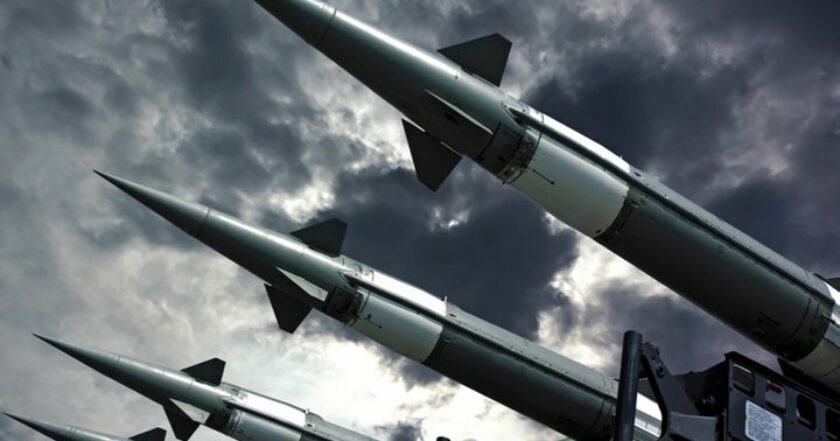Russia's nuclear saber-rattling tactics aim to manipulate Western leaders – ISW

Illustrative photo: Shutterstock
The Kremlin strategically synchronized the "rattling of nuclear weapons" with significant political talks in the West. This is how Russia aims to sway Western leaders in crucial decision-making.
The Institute for the Study of War (ISW) reports this.
The Ministry of Defense of the Russian Federation announced on May 21 that the missile forces of the Southern Military District began the first stage of non-strategic (tactical) exercises with the use of nuclear weapons.
The Russian defense ministry announced preparations for these exercises on May 6. The Russian Aerospace Forces will also conduct exercises with Iskander and Kinzhal ballistic missiles.
Military analysts noted that a well-known Russian blogger, awarded by the Kremlin, directly linked Russian nuclear exercises to the Kremlin's attempts to influence decision-making in the West. In particular, with the recent discussions regarding the permission to use Western weapons to attack military targets in Russia.
This supports ISW's assessment that Russia's tactical nuclear weapons tests are part of the Kremlin's campaign of reflexive control.
Russia often uses nuclear weapons rattle to influence decision-makers in the West.
ISW also assesses that US and Western policies that limit Ukraine's ability to strike military targets in Russia seriously undermine Ukraine's ability to defend itself against current Russian offensive operations in the northern Kharkiv region or any area along the border where Russian forces can decide to conduct offensive operations in the future.
ISW Key Findings as of May 21:
- The Kremlin continues to time its nuclear saber-rattling to coincide with major policy discussions in the West as part of a Kremlin reflexive control campaign to influence Western decision-makers.
- Ukrainian President Volodymyr Zelensky indicated that the limited Russian offensive in northern Ukraine is achieving its goal of drawing attention away from intense Russian offensive operations in eastern Ukraine.
- The Russian military command reportedly initially planned that Russian forces would quickly make significant advances in the northern Kharkiv region, but the limited force grouping deployed to the area suggests that the command likely changed these plans in the lead-up to offensive operations in the Kharkiv region.
- Russian authorities recently arrested Major General Ivan Popov, the former commander of the 58th Combined Arms Army (CAA), on fraud charges.
- The Kremlin is likely using the pattern of recent arrests of high-ranking officials on corruption charges in the Russian MoD to conceal the real reasons for Popov's punishment almost 10 months after his conflict with the Russian military command and subsequent dismissal from his command position.
- Satellite imagery indicates that Ukrainian forces likely damaged the Russian Black Sea Fleet's (BSF) Tsyklon small missile ship in occupied Sevastopol, Crimea, on May 19.
- Russian forces recently made confirmed advances near Vovchansk, Kreminna, Chasiv Yar, and Donetsk City.
- A Russian military blogger claimed that frequent Ukrainian drone strikes against Russian vehicles that lack electronic warfare (EW) systems along the frontline have created an "urgent" shortage of off-road vehicles.
- Russian authorities continue to illegally and forcibly deport Ukrainian citizens, including children, to Russia and to forcibly remove Ukrainian citizens deeper into occupied Ukraine.
For reference:
It was previously reported that on May 6, Putin threatened the West with Russia's "technical readiness" to start a nuclear war.
Andriy Yusov, a representative of Ukraine's intelligence, commenting on Russia's intentions to conduct training on the use of tactical nuclear weapons, stated that nuclear blackmail is a stable practice of the Putin regime.
It should be noted that in March of last year, Russian dictator Vladimir Putin announced that he agreed with the self-proclaimed president of Belarus, Alexander Lukashenko, to deploy tactical nuclear weapons on the territory of the Republic of Belarus. At the same time, the head of the Kremlin talked about the transfer of the Iskander missile complex, which can carry nuclear weapons, to the Belarusian military.
Already on May 25, Lukashenko announced the beginning of the transfer of Russian nuclear weapons to Belarus. Neither Western countries nor Belarusian monitoring channels confirmed such information.
A month later, CNN, citing unnamed representatives of American intelligence, reported that the United States had no doubts about moving the first batch of Russian nuclear weapons to Belarus.























































